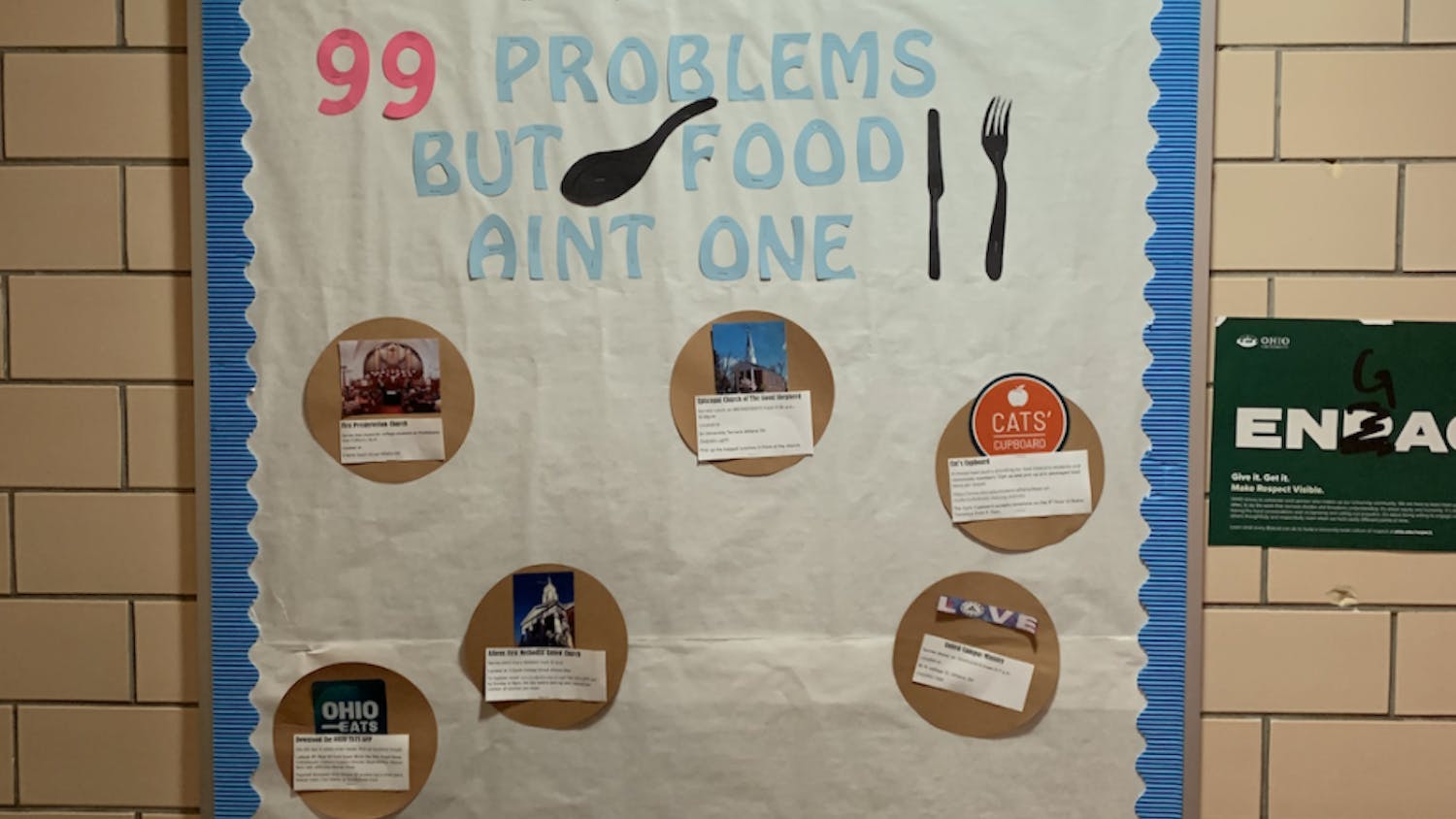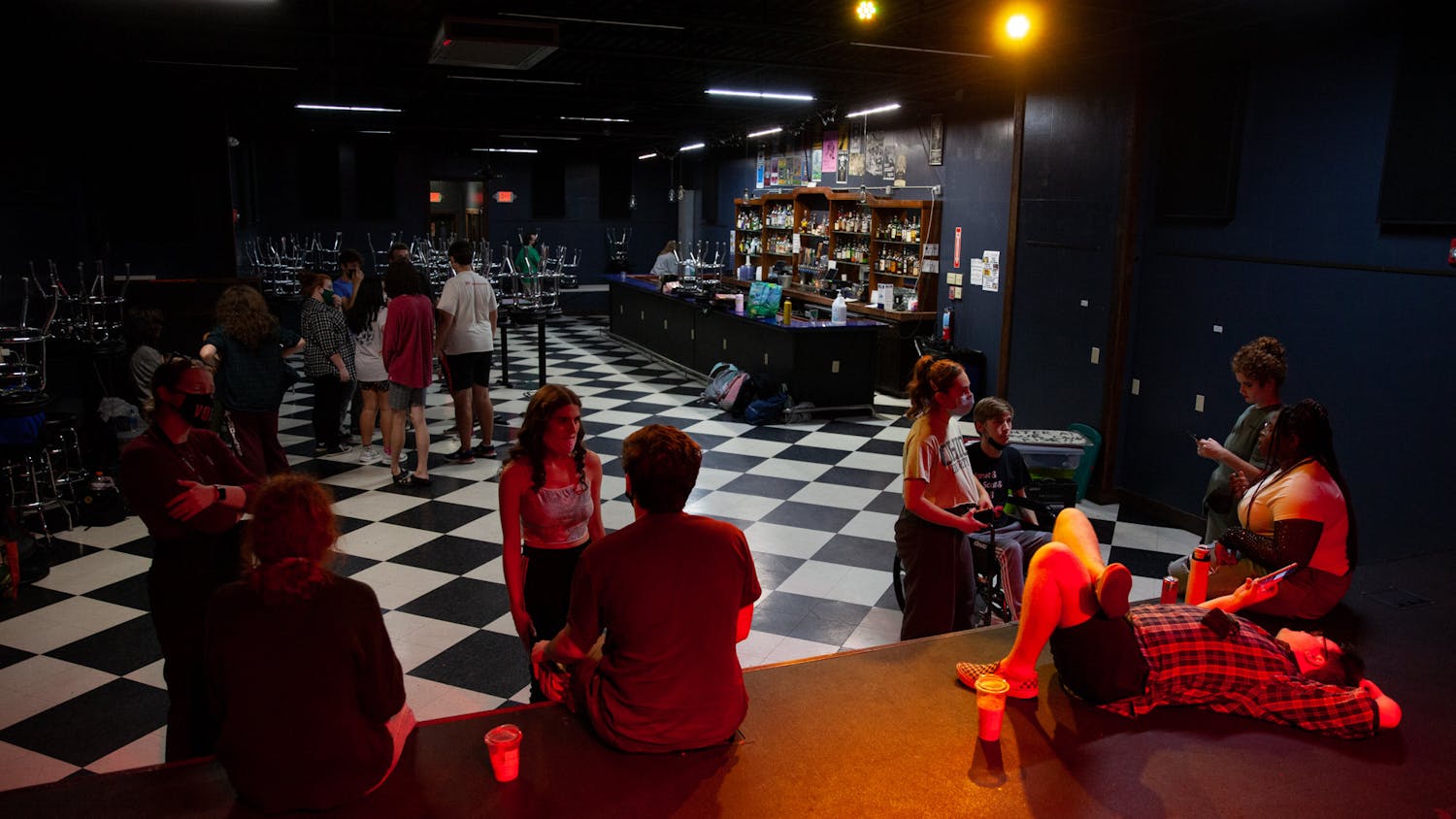Each evening, between April 2 and May 2, vendors in Banten, Indonesia line the city’s streets to sell food and snacks for Iftar – the meal eaten at sunset to break the day’s fast during Ramadan.
Then, people travel to the mosque to recite prayers called Tarawih, meaning night prayer. Uswatun Hasanah, a foreign language teaching assistant and instructor of Indonesian, said the prayer is only recited during Ramadan. Hasanah will be away from Indonesia for Ramadan this year.
Ramadan is the holiest and ninth month of the Islamic calendar and is celebrated by Muslims globally. It begins when the first sign of a crescent moon is spotted during the ninth month. Ramadan is recognized as a month of fasting, charity, empathy, religious reflection, prayer and abstaining from desires. Muslims who participate in Ramadan fast every day of the month from sunrise to sunset unless they have reasons that exempt them from not eating or drinking.
“Fasting during Ramadan is mandatory for Muslims, but there are some exceptions,” Hasanah said. “Like people who are elderly, people who are traveling, people who are nursing (and) pregnant women, they are exempt from the obligation.”
The origins of Ramadan are attributed to the moment Muhammad, the prophet and founder of Islam, was given the Quran, the religious text of Islam, by the angel Jibreel, who Hasanah said non-followers of Islam may know as the angel Gabriel.
“One of the sayings from our Prophet Muhammad (is) ‘Peace be upon him,’” Hasanah said. “He says that Ramadan is the holiest month because (during) Ramadan the doors of heaven are open and the doors of hell are closed. As if they are guaranteed to enter heaven.”
Hasanah said she has been excited for Ramadan and the reason for her enthusiasm is due to the values centered around Ramadan.
“(Ramadan) is very special and we have to be excited to welcome it because the rewards of the good deeds will be multiplied,” Hasanah said. “That’s why in Ramadan, we focus more on doing religious activities like reciting the Holy Quran and doing charity.”
Although Hasanah will miss her family in Indonesia this month, she reflected happily on what celebrating Ramadan is like in Indonesia.
There is a lot of shopping for clothes to prepare for Ramadan, Hasanah said. Hasanah is a seamstress and traditionally makes her family clothes. But she had to tell them she couldn’t this year.
Rohis Uz Zaman, a graduate student studying political science, is experiencing his first Ramadan away from home. Zaman has celebrated Ramadan in Dhaka, Bangladesh, for the majority of his life. Zaman said Ramadan is called Ramzan in Bangladesh and each individual day of fasting is called Roza.
During Ramadan, Zaman said the city is vibrant and colorful. Restaurants build extensions to serve people food when it’s time to break fast. He also said there are a lot of different types of food, most of which are oily and spicy.
When Zaman was younger, he said one of his favorite parts of Ramadan was getting to leave the house after breaking fast during Iftar to pray salah, a prayer dedicated to worshiping Allah, in the mosque. He said as a child he would be asleep at this point in the night, but this was a special time.
“Ramadan is all about controlling your desires,” Zaman said. “Also, you get to understand how those who can’t earn (a) livelihood to feed their children. It’s supposed to make you empathetic toward them. That’s why spiritually, I feel connected with Ramadan.”
To prepare for Eid al-Fitr, the celebration that marks the end of Ramadan, Zaman said Dhaka, one of the most densely populated cities in the world, becomes almost empty as people travel to their native villages and homes. For Eid al-Fitr, people in Dhaka also buy new clothes and wear Punjabi and Pajama to the celebration.
Eid al-Fitr is the most exciting part of Ramadan to Hasanah. She said it encourages more time spent with loved ones, giving each other presents and praying.
“Hopefully we will be having a long life so that we will meet Ramadan next year,” Hasanah said. “We are very sad for its leaving, but also at the same time we are excited because we call it the day of victory because we did it successfully.”
Regarding celebrating Ramadan at Ohio University, there are not as many opportunities to engage in this holy month as there are in other parts of the world, or other parts of the country. In stark contrast to the many vendors in Banten, celebrating Ramadan in Athens looks very different for Muslim students and faculty.
Similar to Zaman and Hasanah, this is also Rayyan Bhutta’s first time celebrating Ramadan away from his family. Bhutta, a freshman studying biology, came to OU this past fall and was pleasantly surprised to find a welcoming community who shared his faith.
“There’s a really nice Muslim community here,” Bhutta said.
The Islamic Center of Athens, located at 13 Stewart St., is also home to the Muslim Students Association, or MSA, of OU. The building is set up like a community center, a place for students and Athens residents to come and go. The organizations seek to educate the OU campus and Athens community about Islam. This includes providing a list of Islamic resources as well welcoming any member, regardless of religious beliefs.
Like many other Muslim students at OU, Bhutta found friendship and acceptance in MSA. Bhutta was apprehensive when he first came to Athens about the size of the Mulsim community near OU. Luckily, he was welcomed into the community almost immediately, and his experience has been positive thus far.
“I came here and I was really scared, but Alhamdulillah – thank God,” Bhutta said. “Everybody here is so amazing; they take you in like you’re family.”
Although this Ramadan will surely be different than the ones in his past, Bhutta is excited for the celebration, and is optimistic regarding the quality of his experience in Athens and at OU.
“Obviously not having my family here is going to be different, but I feel like it’s going to be a nice experience,” Bhutta said.
For Bhutta, the biggest difference this Ramadan is breaking fast without his family. Typically, Bhutta celebrates Iftar with his family, but this year his plan is to break his fast in the mosque, pray and return to eat.
Although excited to participate in the traditions, Bhutta also acknowledges the significance of the practices as well as their spiritual meaning. He says Muslims view fasting as a way to honor and become closer to Allah. Even before and after the Holy month, Bhutta said he tries to fast twice a week to acknowledge all of the blessings he has and to not take them for granted.
“I’m able to have my education, but there’s millions of people that can’t have their education,” Bhutta said. “I can eat and people can’t. It’s kind of a way for me to ground myself and make sure I stay humble.”
In addition to fasting, reading the Quran and performing charitable acts, Bhutta views Ramadan as a spiritual reset.
“It’s one whole month where I’m able to kind of reset my brain,” Bhutta said.
Aligning with the teachings of the Quran, Ramadan is a month to reflect and partake in self evaluation, and to Bhutta, it is an opportunity to improve personal character and create good habits.
“Our goal as Muslims and followers of Islam is to be the best people we can be,” Bhutta said.
Although everyone celebrates Ramadan differently – some not celebrating at all – Ramadan is a time for reflection and betterment of the soul. Adapting traditions to better align with practices of home communities can be difficult, but Hasanah has felt supported and welcomed by her new community despite differences.
“I’ve been thinking, ‘Oh my God I will be sad because I’m away from my family,’” Hasanah said, “But thankfully, I’ve got lots of friends here. Even though we are from different religions, people are very supportive.”






